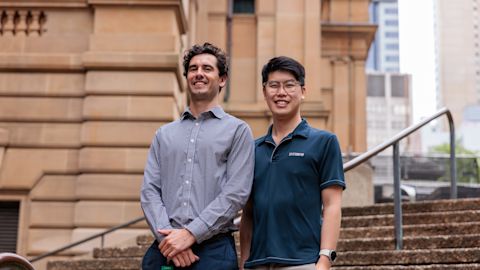We spoke to the Young Professionals Network co-chairs Tom and Leslie and the committee about how they prioritise their mental health and support each other.
Set boundaries between work and home life
Early in your career, it can be tempting to work to the point of burnout because you want to prove yourself, or because you feel like you need to take on more responsibility. But it’s just as important to learn how to make healthy choices for your physical, mental and emotional wellbeing. You don’t have to work overtime every day!
Have hobbies outside of work
This will help set boundaries. Try a sport, a book club, painting or cooking – something that helps channel energy from work projects into something else you really love. Hobbies can help inject joy and creativity into your life.
Plan your workday to include stress-relievers
Some ideas include taking lunch breaks away from your desk, a coffee break with colleagues, or take a walk around the block during the day. At the City of Sydney, we have a great outdoor terrace – perfect for a sunny day! You might also try walking meetings now that the weather is warmer – it’s a nice way to burn some energy, release creativity and connect in a more open way.
Communicate well, communicate often
Regular catchups with your manager and your wider team are important to gauge how everyone is doing, and what the workload is like for your teammates. If you’re feeling stressed about a project or feel like you have too much on your plate – speak up.
There’s always a way to share the load, and you won’t get in trouble for voicing your concerns. Being able to articulate how you feel is one of those skills that will help you in all the relationships in your life – whether it's colleagues, friends, parents, partners, or your kids.
Be observant
Looking out for each other in big ways and small all starts with observation. If one of your colleagues looks a little down, or their behaviour has changed, ask if they’re ok. Offer to help with their workload if you can, or just be an ear if they need to talk. Many of us in the network have completed mental health first aid training and it was eye-opening. We learnt a lot about the cues people give if they need help. We highly recommend it to everyone.
It sounds boring but sleep is important!
Burning the candle at both ends sounds fun in practice, but life is better after a good night's sleep! Not just for yourself, but for people around you too. Without sleep we’re short on energy, patience and positivity. We’d also suggest having a healthy diet but let’s face it, an afternoon chocolate break is a great mood booster.
Don’t be afraid to reach out for professional help
This is a big one, and often a scary one. There’s still so much stigma around mental health and the language we use to talk about it can be very negative.
It can be lonely to feel this way, but statistics tell us that a third of Australians will experience anxiety in their lifetime, one in 7 will experience serious depression, and more than 2 in 5 will experience a mental health condition at some point.
These experiences are more common than you think. Asking for help isn’t something to feel ashamed about, but something to be proud of.
Our organisation offers so much – take advantage of it!
We’re lucky to work for an organisation that cares about our wellbeing. There are so many networks and social clubs you can join, which is a great way to make friends and feel supported. We also have a good employee assistance program, flexible working options, a peer support network, care and cultural leave and more.
Careers at the City of Sydney
If you want to be part of something challenging and rewarding, joining us might be the right move for you. See current opportunities.
If you need mental health support, there are services that can help. You can speak with your doctor to be connected to a service or contact:
- Lifeline (13 11 14)
- 13 Yarn (13 92 76) for Aboriginal and Torres Strait Islander peoples
- If you are experiencing an emergency, call 000
Published 28 October 2024



